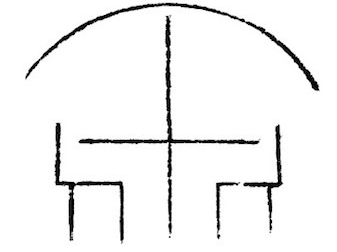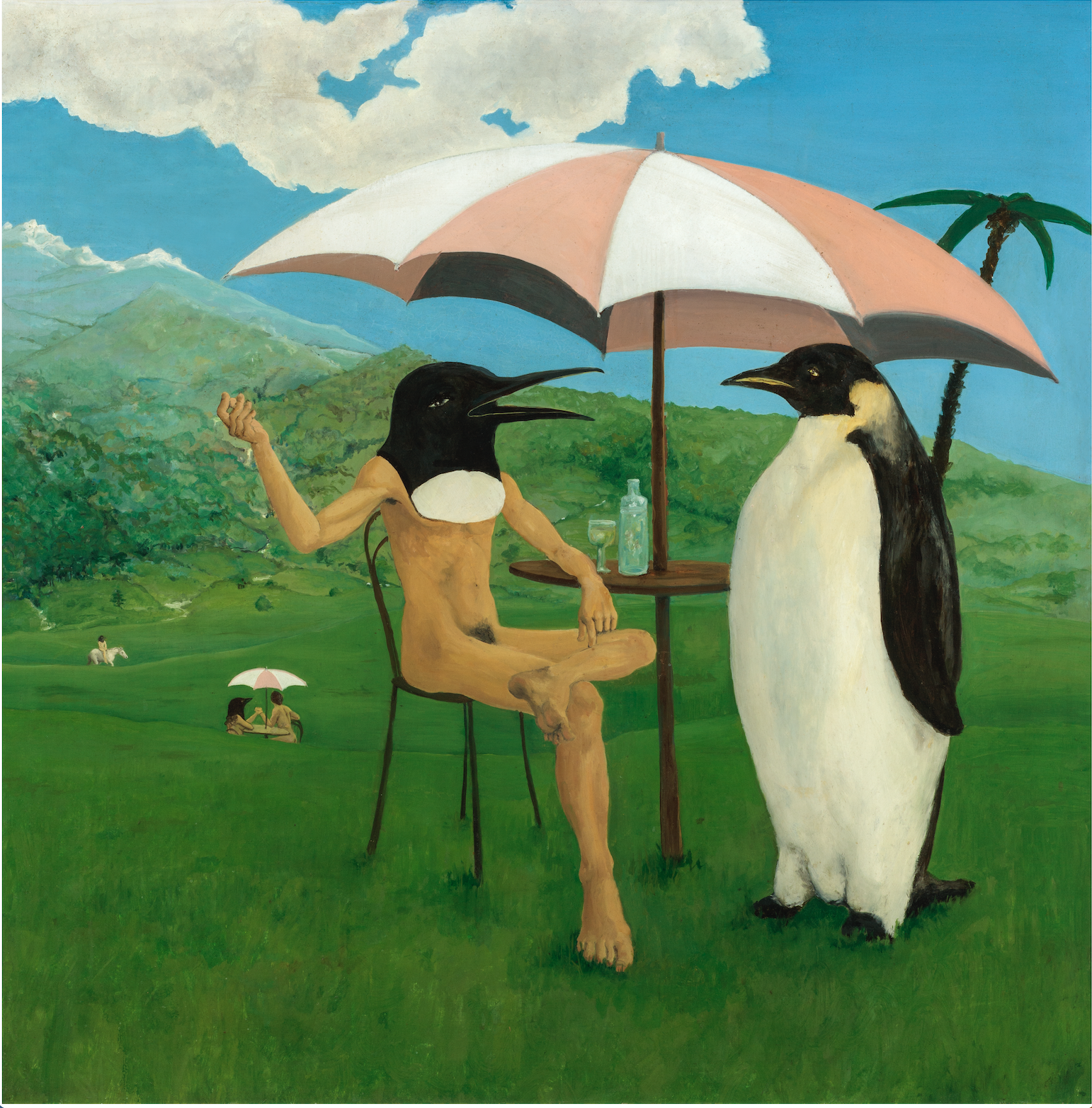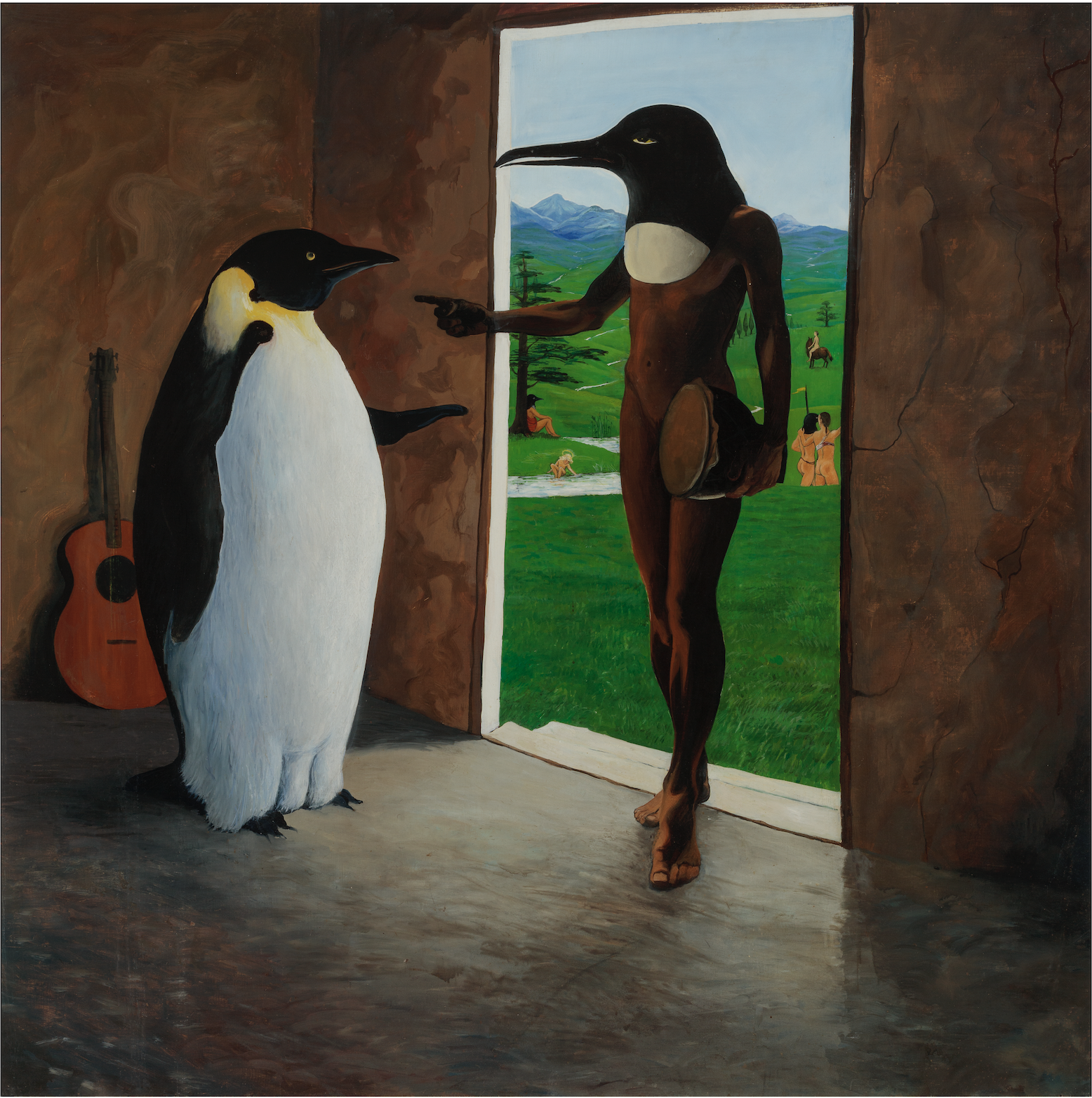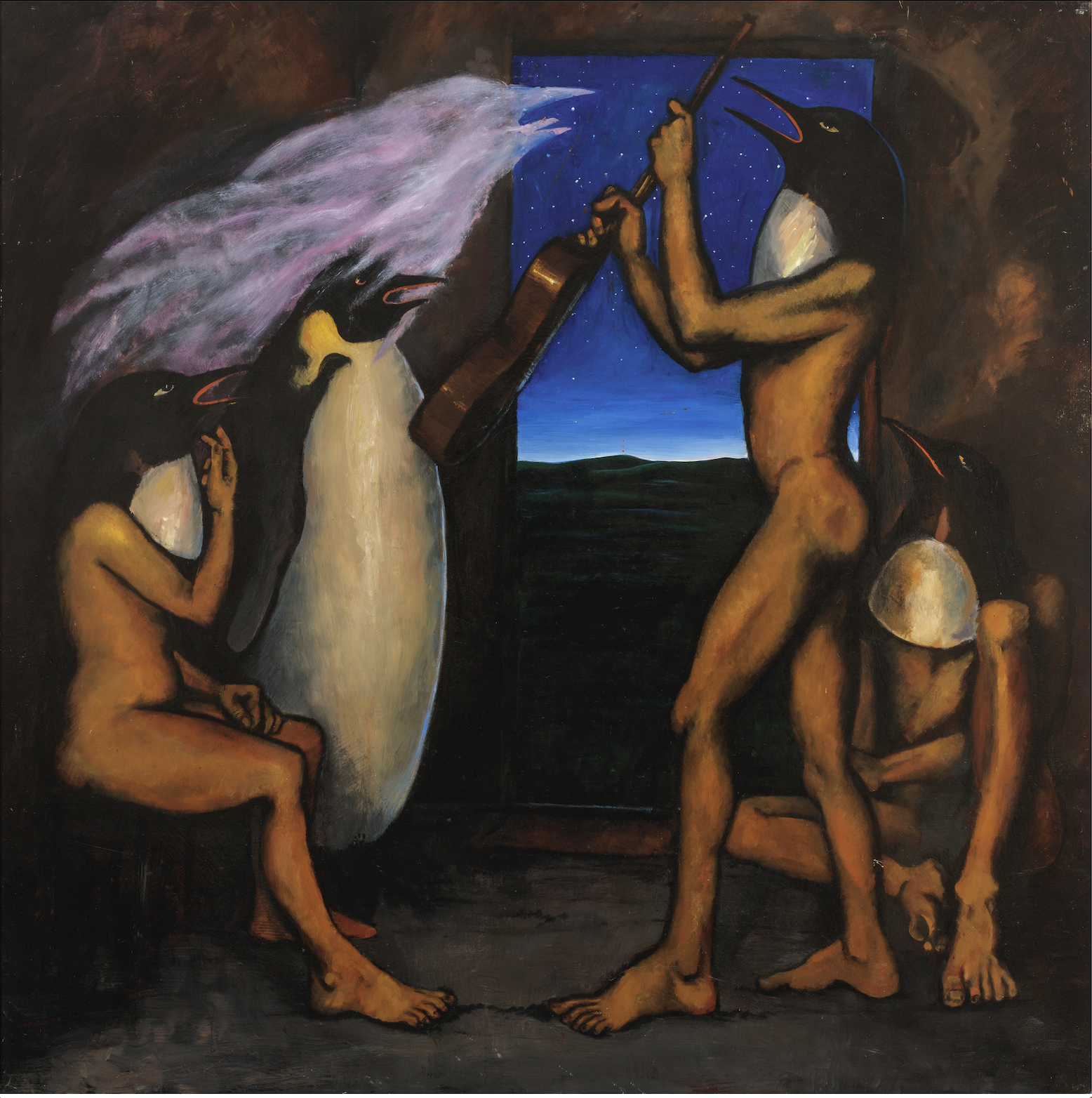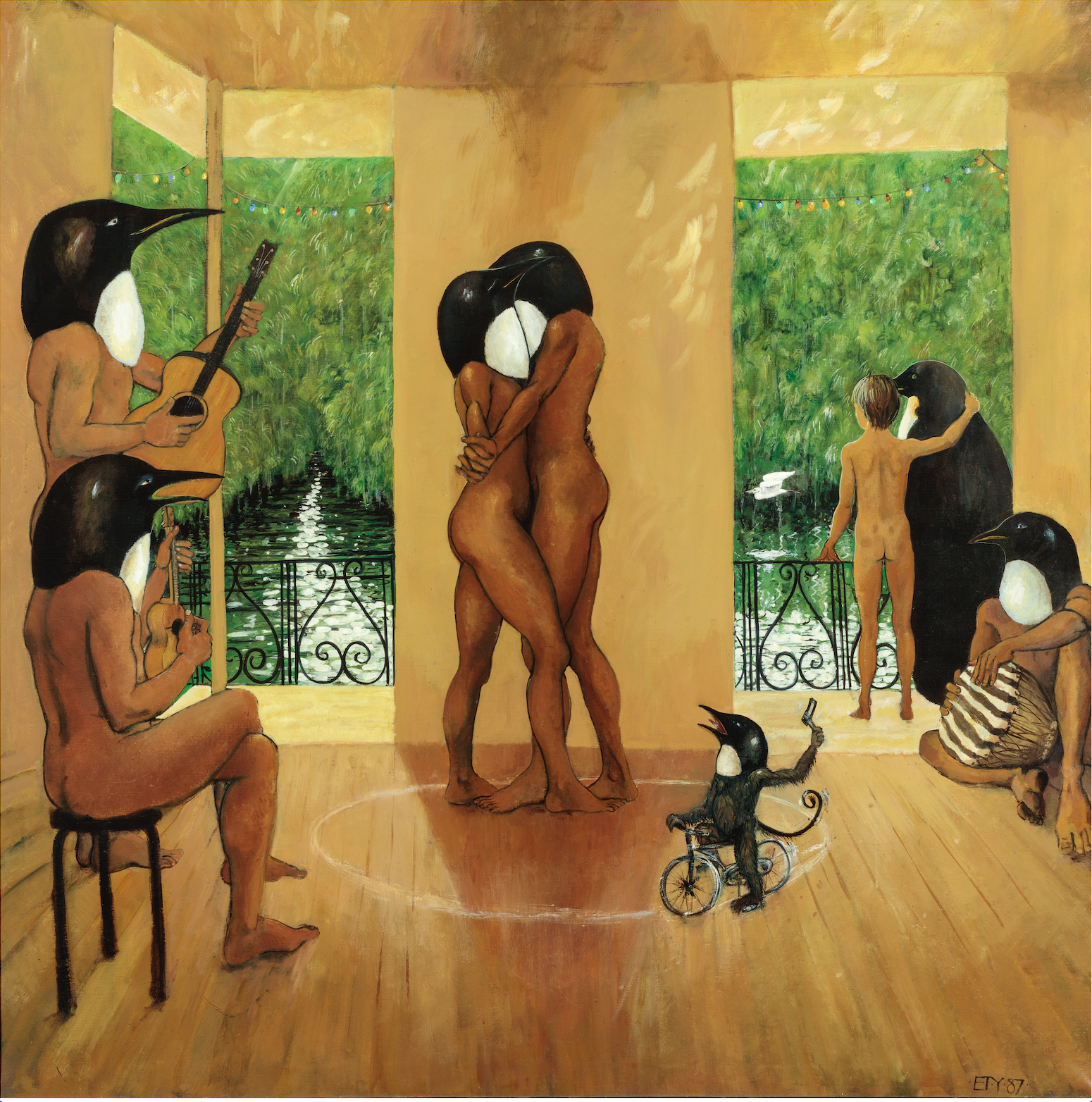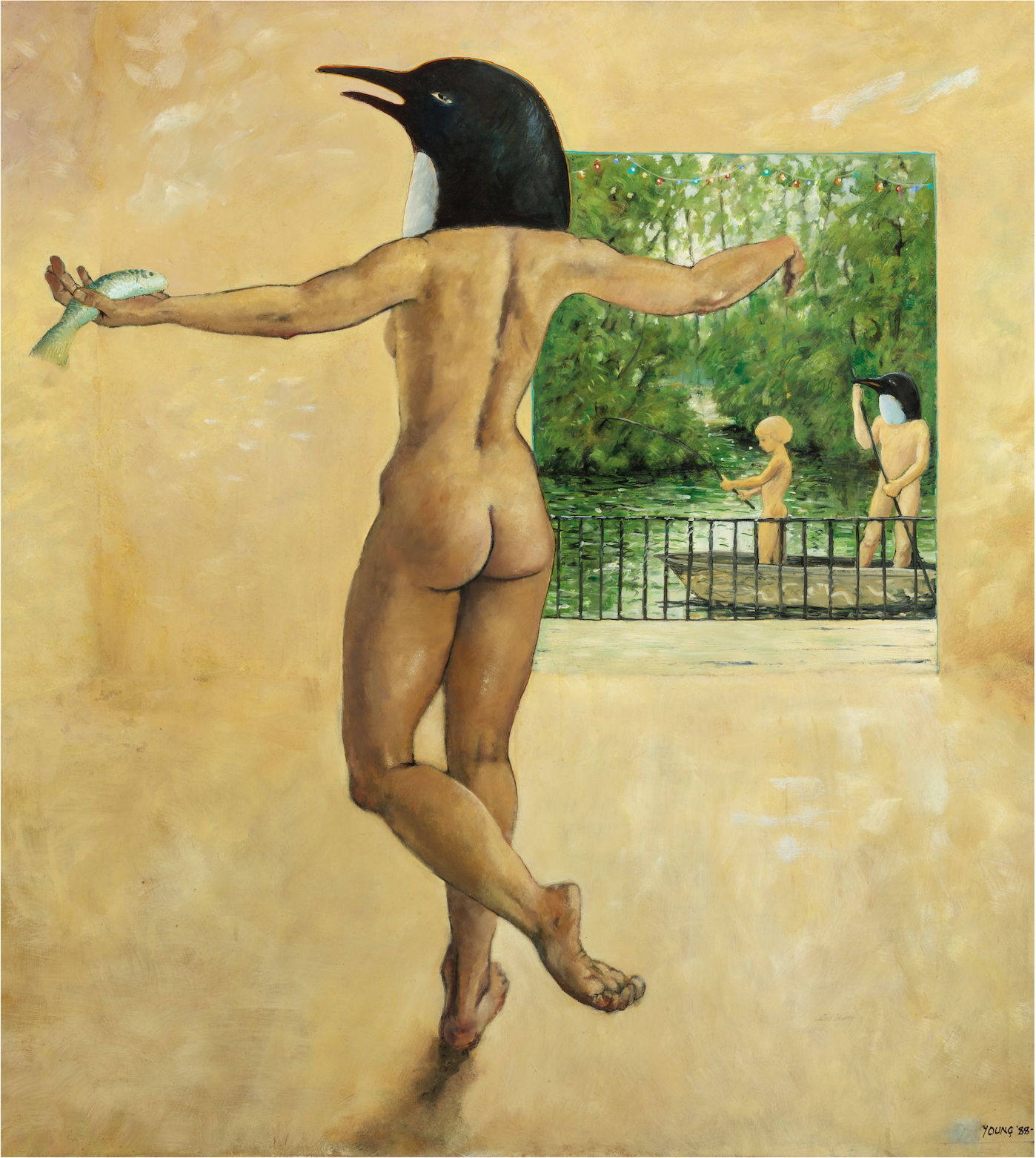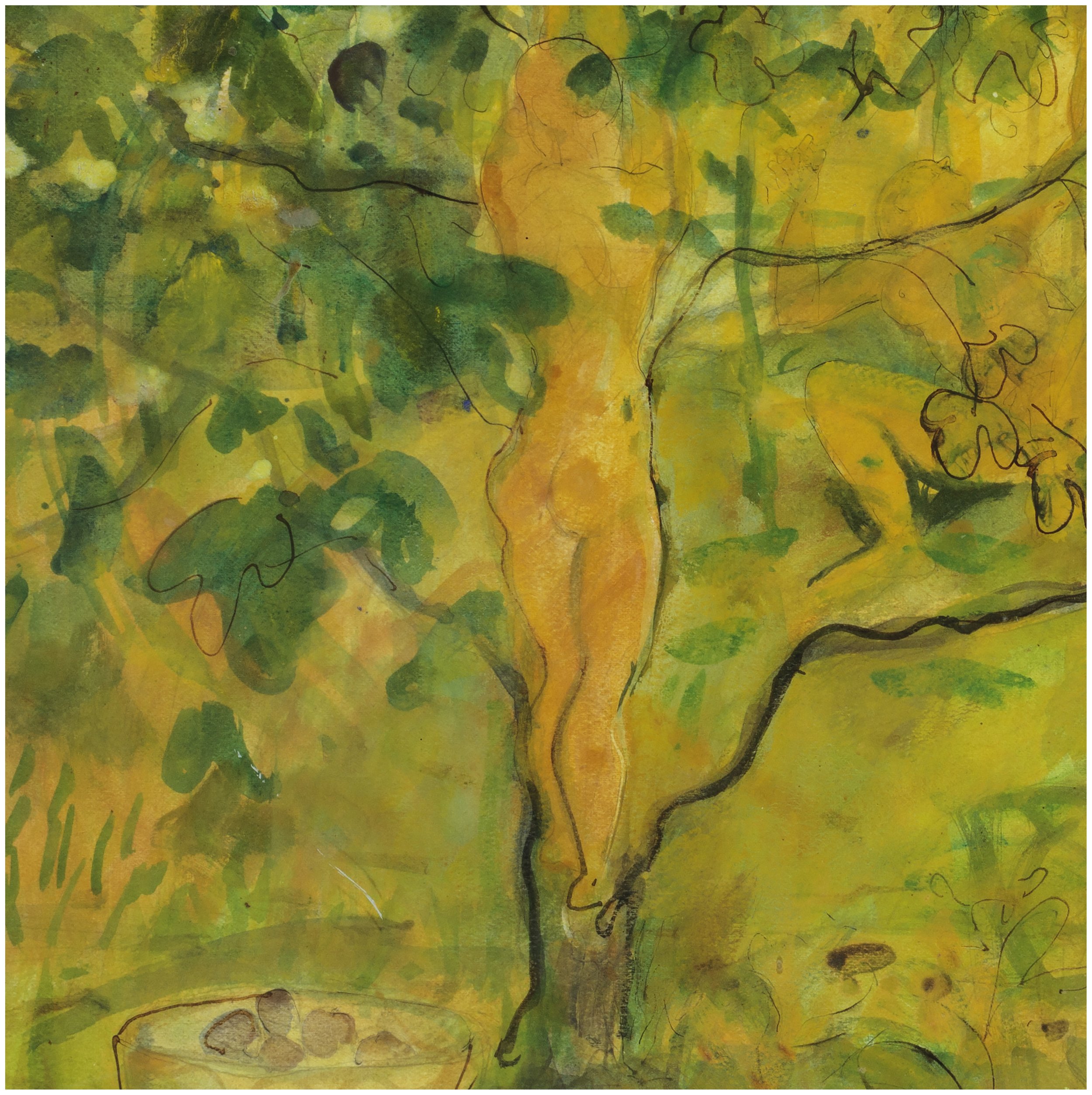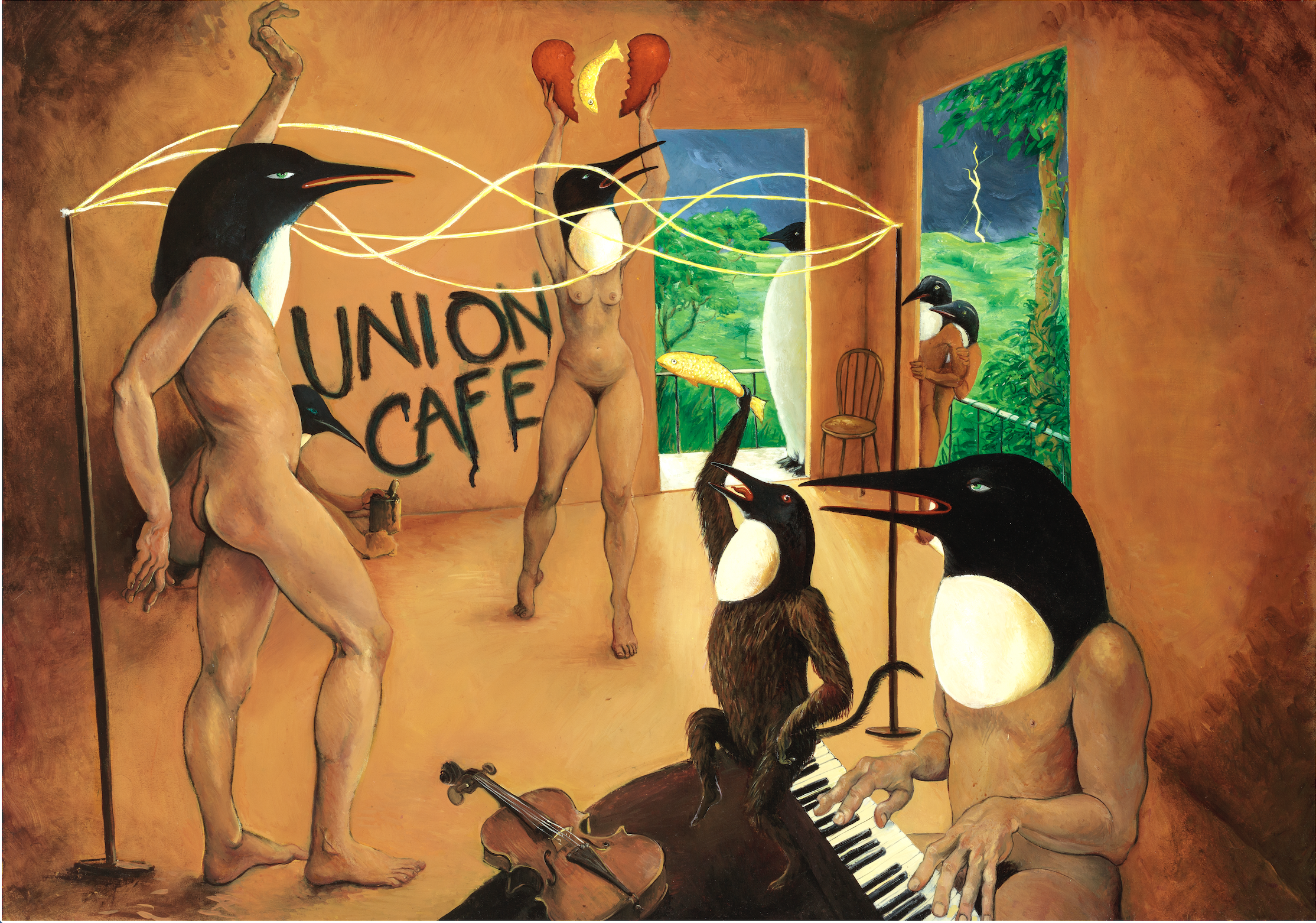THE PENGUIN CAFE COLLECTION
The Penguin Cafe Collection is a limited edition of seven fine art prints made from the original oil paintings by Emily Young, one of Britain’s foremost artists. The paintings were originally commissioned by Simon Jeffes, the composer and creator of the Penguin Cafe Orchestra, one for each of the albums he produced. The paintings brilliantly reflect the mythology he created within the music and performances of the Orchestra. This is the first time these prints have been made available. They are printed to exhibition standard on the finest archival paper.
Click on each painting to explore its story and order your piece of Penguin history via our webshop
THE HISTORY
The concept of the Penguin Cafe formed in Simon’s mind as the result of a dream-like vision he experienced during a severe bout of food poisoning in the south of France in 1972. This is how he described it:
“I was laying in bed delirious, sort of hallucinating for about 24 hours. I had this one vision in my mind of a place that was like the ark of buildings, like a modern hotel, with all these rooms made of concrete. There was an electronic eye which scanned everything. In one room you had a couple that were making love, but lovelessly. It was cold sex with books and gadgets and what have you. In another room there was someone just looking at himself in the mirror, just obsessed with himself. In another room there was a musician with a bank of synthesisers, wearing headphones, and there was no sound. This was a very terrible, bleak place. Everyone was taken up with self-interested activity which kept them looped in on themselves. It wasn’t like they were prisoners, they were all alive but only within themselves. And that kept them from being problem or a threat to the cold order represented by the eye. A couple of days later I was on the beach sunbathing and suddenly a poem popped into my head. It started out: “I am the proprietor of the Penguin Café. I will tell you things at random” and it went on about how the quality of randomness, spontaneity, surprise, unexpectedness and irrationality in our lives is a very precious thing. And if you suppress that to have a nice orderly life, you kill what is most important. Whereas in the Penguin Café your unconscious can just be. It’s acceptable there and that is how everyone is. There is an acceptance there that has to do with living in the present with no fear in ourselves.”
In the descriptions of these works below you will hear the large penguin figure being referred to as “The Proprietor”. Simon perceived the Proprietor as an all-knowing, wise being who could lead you to a place of spontaneity and musical inspiration that would help you become the person you were created to be.
THE MUSICIAN - SIMON JEFFES
Simon Jeffes was a musical adventurer who crossed boundaries with a sense of fun. He started as an avant-garde composer but through the Penguin Cafe Orchestra he went on to develop an engaging musical Esperanto that made his work almost impossible to categorise. His evocative, dream-like work was widely used in film and video production and a ballet was commissioned from him by the Royal Ballet in London. He died in 1997 aged 48. The orchestra is now run by his son, Arthur Jeffes. Amongst Simon’s favourite critiques of his music were a quotation from the critic Robert Sandal who said his music came from “An Imaginary barn dance of the future”; and a Japanese woman attending a concert who said the music sounded strange, because it was as if she’d heard it a long time ago.
Simon’s connection with penguins began with an interest in television wildlife documentaries depicting their life in the wilds of the Antarctic. He was facilitated in how they co-operated to protect themselves against the cold and attacks from Skua Gulls, but also how they seemed to have individual, strangely human characters. One penguin would toil to collect stones for their nest, another would steal them from the hard-working ones. In the 1970’s Simon came across the book “Isle de Penguins” by Anatole France. In this allegorical tale a monk meditating by the seashore boards mysterious a stone boat which transports him to the Antarctic. The short-sighted monk blesses a colony of penguins which he mistakes for people. The book is the outworking of this mistake as the penguins start to assume human characters.
In 1972 Simon received a vision of a dystopian future world while recovering from food poisoning. In this vision he perceived a malignant force trying to enslave humanity by isolating them into individual units and turning them inwards to a cult of self-worship. To counter this he wanted to create a place of warmth and light, full of loving relationships, meaning and fun. For Simon the key ingredients for life and his music were a sense of adventure and spontaneity through which he sought to connect to a universal human experience and longing for truth. This is certainly the place of adventure and challenge he created within the Orchestra and for those who came in contact with him and his music. This is also the spirit so brilliantly captured in the paintings by Emily Young.
THE ARTIST - EMILY YOUNG
Emily Young was born in London into a family of writers, artists, politicians, naturalists and explorers. As a young woman, she worked primarily as a painter, studying briefly at Chelsea School of Art, Central St Martins in London and Stonybrook University, New York. She left London in the late 60s and spent the next years travelling widely, studying art and culture. In the early 1980s she started carving stone, preferring to use discarded materials from abandoned quarries. The Financial Times declared: “Emily Young is acclaimed as Britain’s Greatest living stone sculptor.” In the 1970’s and 80’s Emily was Simon’s partner and understood his vision behind the music and the imagined magical place of the Penguin Café. Emily now lives in Italy and is the mother of Arthur Jeffes, the current director of the PCO.
words by Imogen Jeffes
